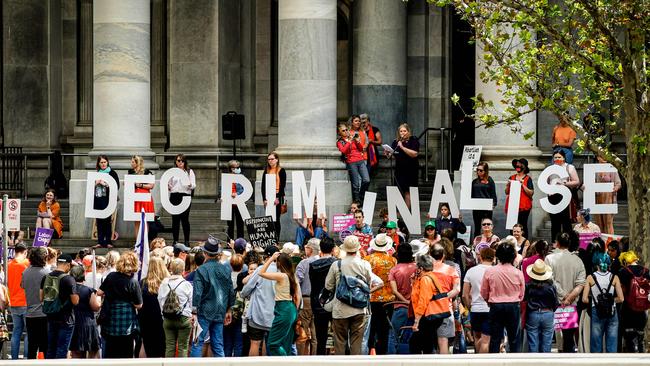Vickie Chapman: Abortion reforms are overdue in SA and don’t deserve hysterical abuse
Attorney-General Vickie Chapman on why she’s backing abortion reforms that have seen her called the Wicked Witch of the East and accused of genocide.
Opinion
Don't miss out on the headlines from Opinion. Followed categories will be added to My News.
The current debate regarding abortion is not whether it should be lawful. That was settled over 50 years ago. The better question is: How can parliament bring the law into line with medical advances and allow for the best clinical care?
The Termination of Pregnancy Bill will remove abortion from the criminal law, regulate it as the health procedure it is, and remove outdated, inequitable barriers that women face. South Australia will be the last state in the country to do this.
The law currently requires a woman to convince two doctors, who personally examine her in a legally mandated hospital, that the continuation of the pregnancy is a greater risk to the health of the mother than a termination.
It was written when surgery was the only method of abortion, as opposed to early medication termination which is now the safest and most common method. Its safety is comparable to that of Viagra, yet legislators apparently concerned about women’s safety have not yet advocated for two doctors to become involved in men’s sexual-health decisions.
Based on a 500-page report by the Law Reform Institute and extensive consultation with clinicians and health associations, this Bill modernises the requirements for a termination. It is proposed that women consult one doctor without satisfying further statutory criteria. It need not take place in a hospital, but could take place in a GP clinic – placing care within much closer reach for women living in the country. The Bill also removes outdated residency requirements and creates a new offence for unqualified people to perform terminations. A different legal test applies for foetuses past 22 weeks and six days, the accepted medical understanding of viability.
In relying on the expert evidence provided by the Australian Medical Association and the Royal College of Obstetricians and Gynaecologists as the basis for good lawmaking, I have received some colourful feedback. I have been called the Wicked Witch of the East and accused of genocide, eating my own young and revelling in the killing of babies. This is the level of emotive unreality in this debate.

Inflamed by this unreality, unfounded concerns have arisen in relation to late-term abortions, often erroneously called “abortion to birth”. I, along with the medical profession, accept there are greater ethical considerations in assessing a termination for viable children.
However, it is frankly offensive to women – not to mention their doctors – that abortion would even be considered for frivolous reasons.
At this point, expectant mothers and their families are preparing for the arrival of a baby. No one changes their mind. The need for a termination at this time is invariably tragic, usually necessitated by a foetal abnormality only capable of being diagnosed after 20 weeks.
Possible amendments to restrict access to termination beyond which two doctors assess as medically appropriate is only an exercise in sanctimony.
In 2019, five women had a termination post 23 weeks. Prohibiting this in South Australia means that the next five will be forced to travel interstate for their healthcare. This is not an emotional or financial cost anyone should bear in addition to the loss of their baby.
I reject the proposition that the Bill makes it easier to obtain a later-term abortion. In fact, as the AMA has repeatedly stated, the Bill introduces a level of protection which does not currently exist. The clinical decision-making and practices of doctors and other health professionals are governed by incredibly strong safeguards, regulations, and professional ethics within which they must act, or they will lose their right to practise.
Members of parliament always need to weigh up competing principles when voting on conscience Bills. For some, the misguided, ill-informed, and mischievous lecturing from those opposed to sensible change will be hard to ignore.
But I urge my colleagues to listen to the experts and to those quiet Australians who place trust in their doctors for every other medical decision they will make. I am pleased to have the Premier’s support in presenting this overdue reform for the women of SA.
Vickie Chapman is Deputy Premier and Attorney-General



